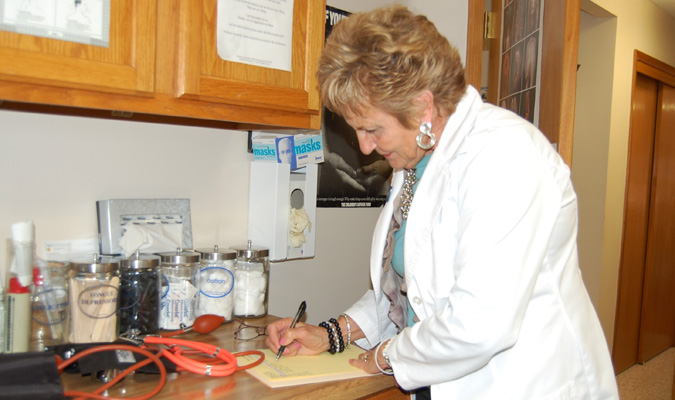It’s the time of year when most students are trading sandals for boots and T-shirts for sweaters, but some Baker University students are instead trading these things for tissues and Tylenol.
“A lot of times, it’s a combination of seasonal allergies, which people are having trouble with … just the dust and all the leaves and everything changing,” Ruth Sarna, director of student health services, said. “Then, sometimes you add in a lack of sleep … so you’re immune system is altered and it’s kind of hard to fight things off.”
Sarna said the campus health center has mostly seen students struggling with the common cold, which includes symptoms such as sneezing, stuffy nose, sore throat and coughing.
This combination, in addition to the approaching end of the semester, is what makes this time of year a dreaded time for many students.
Rather than planning schedules, illnesses are rearranging students’ schedules for them.
Matthew Potterton, assistant professor of music, and his students have suffered from a more serious illness—laryngitis.
“I have nine people in my chamber choir and four of them had laryngitis for our concert, so I had to cancel it,” Potterton said. “That’s the first time I’ve ever had to do that, but obviously you can’t do much with laryngitis.”
The concert was scheduled for Oct. 30 but was rescheduled for Nov. 18.
Another group of students affected by illness are student-athletes.
“It could affect us pretty dramatically this is time of year,” Athletic Director Theresa Yetmar said. “Every player is important and so, you lose one on the team, and it changes the dynamics of the team. And then, because they’re always around each other all the time, if one gets sick, it can become two, which can become five, and it can spread throughout the team.”
Freshman softball player Alyse Menghini has been suffering from illness since she arrived at Baker this fall.
“It’s definitely made it harder, because you’re not at 100 percent,” Menghini said. “You feel tired all the time.”
Sarna said students who live in the residence halls or greek houses are more susceptible to illnesses because of close living quarters.
“The main thing is adequate rest, lots of fluids and a good diet,” Sarna said. “I encourage a lot of frequent hand-washing and especially covering their cough … and wiping down commonly used areas, with either antiseptic wipes or … 1-to-10 Clorox and water solution.”








